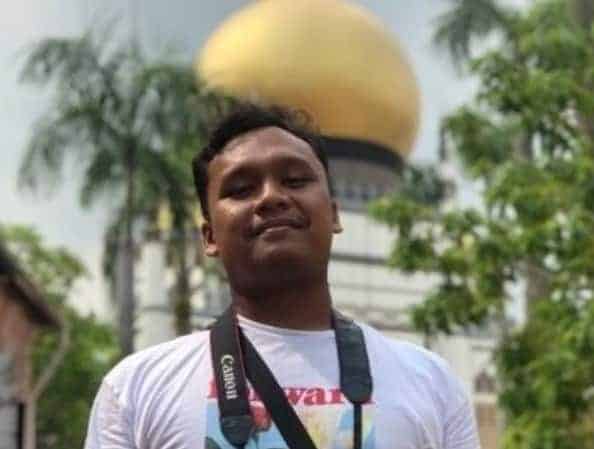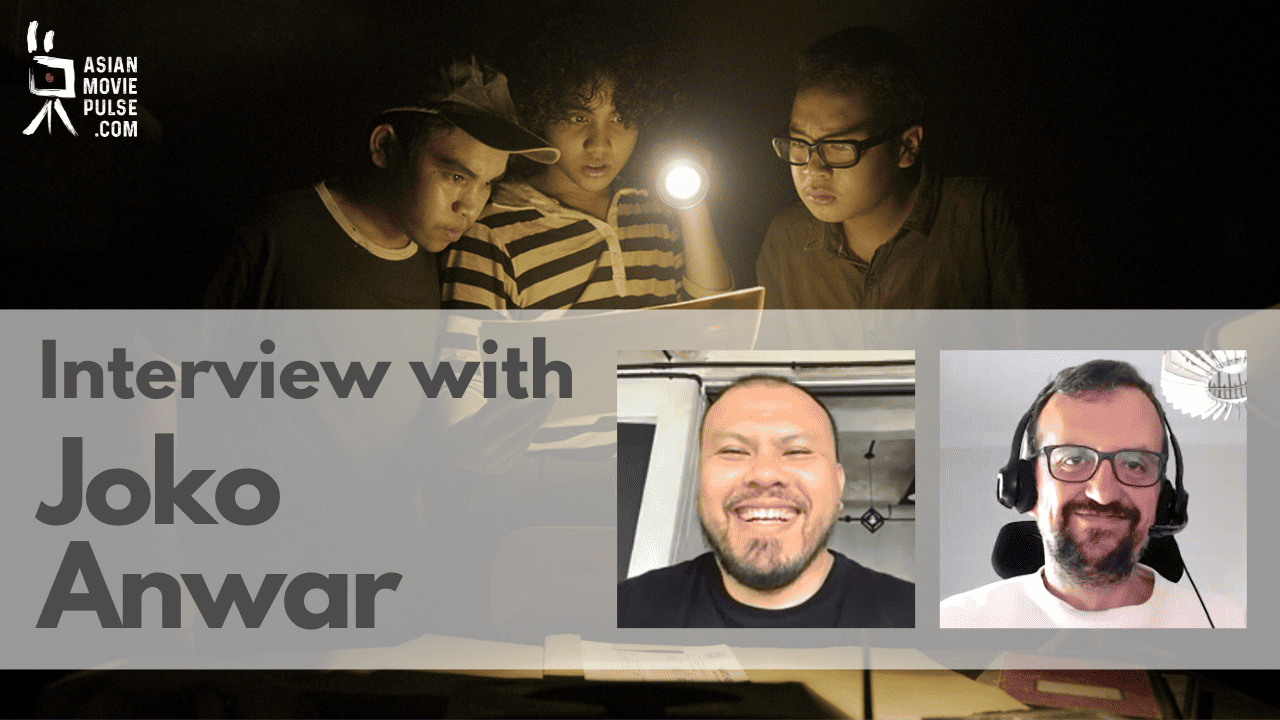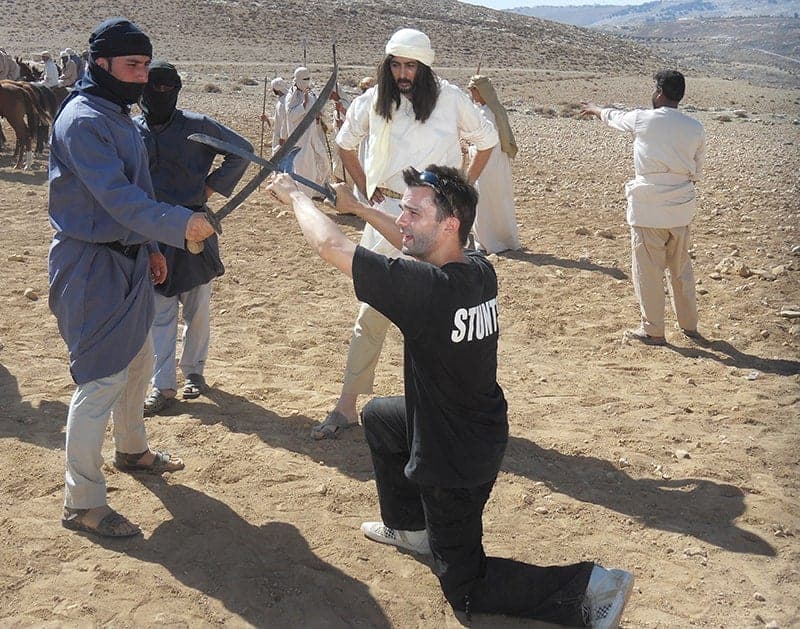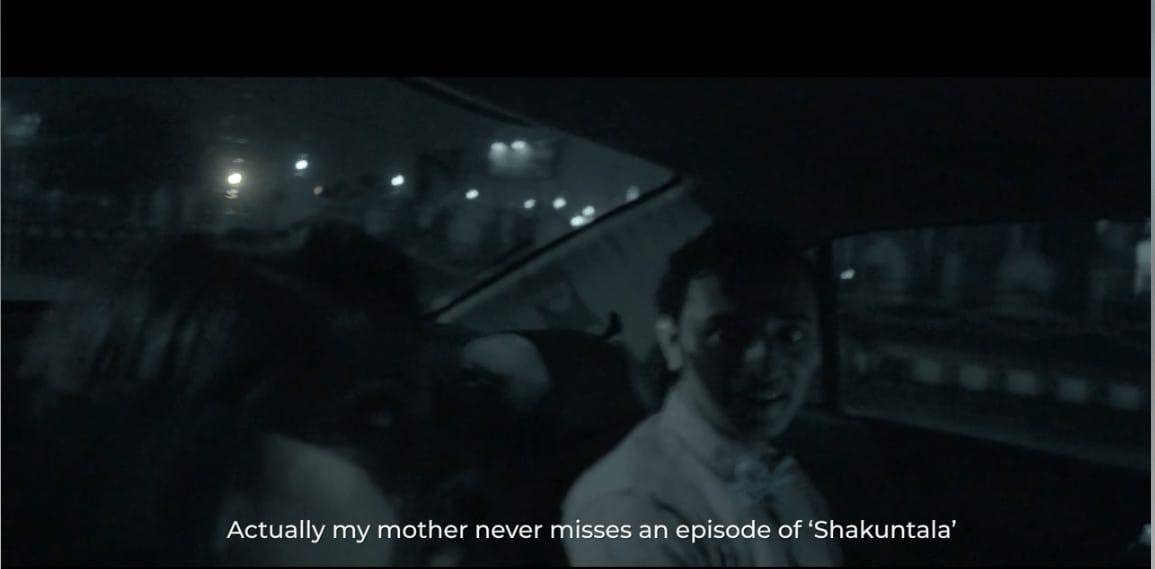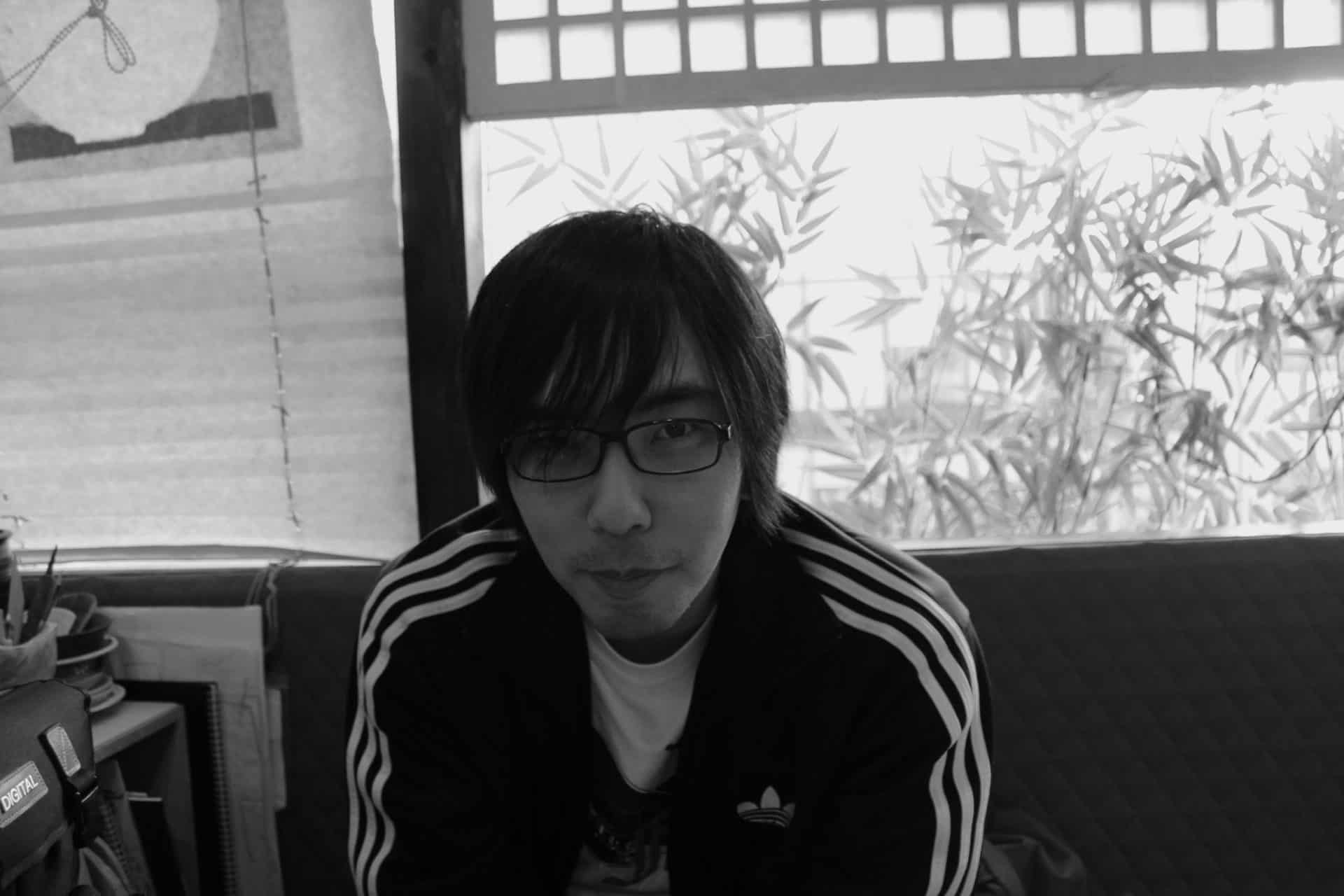I became familiar with the work of Adam Taufiq Suharto through our ‘submit your film' initiative, reviewing his work “Belas“, “Gelora“, “Balah Tuah“, and “Dekaden“, with another contributor covering his debut “Falasi“. These films act as an example of what makes the ‘submit your film' process exciting for a critic, showcasing unique talent that has potential to become a defining voice in cinema. Suharto is one of the many directors through our initiative that has left that impression. The interest in his projects grew through experiencing his ability to convey deeply introspective narratives, utilizing the universally understood language of cinema, as well as a sharp visual style which can transition from serene to disquieting in a seamless fashion. With admiration for his work, I wanted to speak to Adam Taufiq Suharto to better understand his process and thoughts on film. Suharto was also shortlisted in our annual list of best films received through ‘submit your film' for “Belas”, which you can read here.
Intro from Adam Taufiq Suharto
“My name is Adam Taufiq Suharto and I have a bachelor's degree in Artistic Writing (Screenwriting and Creative Writing) from Universiti Teknologi Mara (UiTM) and have an experience as a freelance scriptwriter. During my time as a freelance scriptwriter at Multi Utama Sdan Bhd, I started contributing in TV industry as a script writer for 13 episodes for the Documentary Drama Series for RTM channel.
I also had experience in directing several short films. Few of my short films have won several awards at few film festival such as Asian Youth Indie Films Festival 2018, Kota Kinabalu International Films Festival 2019 and FiTA Wave Short Films Awards 2019. I have vision for the future, to contribute to the arts scene of Malaysia and producing something new for the diversity of arts in this country with Koyak Tiket Films Production.
When did you first realize that film was a passion of yours? And how did your education influence your growth as a filmmaker?
Firstly, I am not a film student. Before, I studied in MARA Technology University (UiTM), and I was there as a creative writing student in one of the university's faculties, which integrated films, theatre, writing and animation under the same campus. From there, I started to realize how cool it is to tell a story visually when I attended the Film Theory and Appreciation class in the first semester of my degree. The class was conducted by Dr. Norman Yusoff, a Malaysian film scholar. This class had enlightened me about the various forms of films that had become an antithesis of Hollywood cinema. Even though the class was not a filmmaking course but more to the theoretical aspects of film, it helped me as a student to know what is cinema. I've learned a lot about how films can be made in various styles, from formalism to realism and many more.
The next semester, I wrote a short story entitled “Falasi”, and eventually directed a film adaptation of this short story of mine, which marked my debut as a director. I wanted to make it as a noir film, although I don't really think we could achieve it. However, I was shocked to see that “Falasi” got some extraordinary attention from among my friends in the faculty and from film festivals as well. From there, I told myself that this is going to be my new way to tell a story.
I also attended film screenings organized by a film community called Wayang Budiman frequently. These film screenings were curated by Dr Norman Yusoff. By attending these screenings, I've been introduced to many rare films, especially those from Asia. From classical Indonesian filmmakers like Asrul Sani and Usmar Ismail to masters of cinema in the Philippines such as Lino Brocka, Mike De Leon, Lamberto Avillena, Marilou Diaz Abaya and many more. Wayang Budiman had become my “second university” for learning how to analyze films and how to make good films by watching various types of films. There are also a few filmmakers in the Wayang Budiman community, who are among those that I myself admire and have learned a lot from their works. They are Bebbra Mailin, Ridhwan Saidi, Arian Md Zahari, Isyraqi Yahya, Syahrul Musa and Muzzamer Rahman.

Can you explain your writing process a bit more in depth? I understand that “Gelora” was based on a novel or story you had written, was this first conceptualized to be a book, or was the intent always to make it into a short film?
“Gelora” was made for ‘Temasya Wayang Budiman', a film festival that was conducted by the film community, Wayang Budiman. For their festival this year, they had ‘adaptation' as their theme. From there, I wrote a short story and simply adapted it into a film. Besides making short films, I am also writing short stories and essays for a local online newspaper in Malay. But somehow, some of my readers said that they feel like they are reading a film script when they read my stories and essays. I am not entirely sure whether that sort of comments could be considered as a compliment or not, but I think I wanna take them as a compliment (laugh) Actually, I love to create my narratives by writing them out as short stories first, before I transfer them into screenplays, so that I can appreciate the relationship between literature and film.
Within your work, I have gotten the impression that you draw from a large amount of influences to create your unique visions, but I wanted to ask you specifically about your films “Gelora” and “Dekaden”. Both films contain elements of horror, and was curious what inspired you to explore this genre?
I don't really think that I have any specific artistic vision which I could “declare” as my signature because I always think of myself as someone who is still trying to explore myself and my artistic vision. But when you mentioned that I have my own unique vision, I think the authorship had been built organically in the process of finding my own style. I am not really a big fan of horror films. I am more into thriller and mystery.
I am a big fan of Alfred Hitchcock. As we know, Hitchcock's films are more thriller and mystery, but somehow his films can leave the spectators with a horrific effect, like how it is with his film “Psycho” (1960). Maybe that's why you can find this horror element in both of my films, even though I don't feel like the horror was delivered excellently.. Just want to share something, “Gelora” was actually inspired from Michaelangelo Antonioni's films.
However, for this film, I merged my inspiration from Antonioni's work with the current issues in Malaysia, including a statement from the 7th Prime Minister of Malaysia, Mahathir Mohamad, about poor people. As for my other film, “Dekaden”, its narrative structure is inspired from Christopher Nolan's style of narratives which heavily relies on Shepard tone style of music. I love to ‘steal' something from other legendary directors, in order to make something become my own (even though I know it is not exactly mine).
Through your studio “Koyak Tiket” you get to play the role of producer, screenwriter, director and editor. What role do you find the most rewarding and the most challenging?
Without any doubt, of the director. Although filmmaking is a collaborative work, I believe that the director is the centre of creativity. The whole production and the final product is under his responsibility. That's why, I think, that the role of a director is the most rewarding and challenging in any production.
Where does the name “Koyak Tiket” originate from?
Credit goes to my friend, Eirsyad Qawiem as he is the founder of Koyak Tiket. The word ‘Koyak Tiket' is a Malay word that illustrates the ‘ritual' in cinema where we need to tear (koyak) our ticket (tiket) before we enter the cinema hall. Nothing serious or deep about it. (laugh).

Your short film “Dekaden” contains one of my personal favourite original scores in a short film, can you describe your process in selecting music for your projects?
The score was made by Eirsyad Qawiem, and it is not exclusively made for “Dekaden” actually. Eirsyad made all the music for his discography in Bandcamp, a public music app. I listened to this song of his for several times, and eventually I found it suitable to the visuals of “Dekaden”. However, I chose his song based on the rhythm of my visuals. I've lots of options when I listen to Eirsyad's list of songs that he had composed himself. Maybe, I should collaborate with him more when it comes to music scores for my films.
The majority of your work is shot in Black and White, what drew you to this visual style?
I have a thing with black-and-white films. I admit it. But, one of the reason is because of this sense of nostalgia that I have towards classical films and maybe it is like manifestations of my own sentiments regarding films — ‘Are black-and-white films no longer relevant in this 4K/8K era?'
What are your current thoughts on the Malaysian film industry? particularly its ability to embrace independent filmmakers?
I don't really think that I am the right person to answer this question, because I am still new to this industry; however, no doubt, it is sick. Many of my friends who are university graduates in the creative fields had to find a job in other fields because there's a lot of problems with the industry, such as underpayment issues, the lack of job opportunities in the creative fields, being pressured by the “demand” of the market to produce cliché contents for productions in order to get funded, and many more ridiculous issues. These problems were caused by how the society in Malaysia do not really appreciate art and film as they appreciate other things. They will get angry if a doctor or an engineer is being underpaid, but it will be the opposite when it comes to real artists (I use the term “real artist” here because of how people in Malaysia tend to get confused between these two terms — “artist” and “celebrity”).
There is a case where a writer shared about how he was being underpaid by his employer and surprisingly, many people from the society criticized the writer by telling him, “you should not write because of money, because you writers need to contribute to the society.” Now, just a question, what if we use the same statement for a doctor, since doctors also need to contribute to the society, rather than just working for money, right? The real question is, does an artist really has no right to get paid well? Another problem is with the country's education system. The system has never supported arts as a main focus, and it becomes worse when our former Prime Minister, Tun Dr. Mahathir Mohamad had once said, “art education is not desirable” as he wanted the people of Malaysia to focus on the so called “professional fields.”
As Tun Mahathir is our longest-serving Prime Minister, his thoughts on arts had been sowed in the minds of Malaysians, and that is the root of ‘cancer' for the film and art industries in this country. We should learn a lot from South Korea and Indonesia, especially on how their industries succeed both commercially and artistically, of which is mainly because of how they get a lot of support from their government and society. However, there's a lot of potential in Malaysia, especially from the younger generation who tried to make films and arts alternatively without the support of the government or the “dinosaurs” of the film industry. I believe we will be recovered from this ‘cancer' in few more years. I believe so.
What advice would you give to aspiring filmmakers to help them get involved in the industry?
What I am about to say here could also be an advice for myself. Just remember what Jallaludin Rumi once said, “What you seek is seeking you.”

What are some of your favourite filmmakers/films?
I think I would just list down my favourite filmmakers, since there are too many titles when it comes to my favourite films.
Here we go.
Alfred Hitchcock, Orsen Welles, Robert Altman, Brian De Palma, Francis Ford Coppola, Martin Scorsese, Jean Luc-Godard, Alain Renais, François Truffaut, Passolini, Fellini, Michaelangelo Antonioni, Tarkovsky, Dario Argento, Aki Kaurismäki, Abbas Kiarostami, Asghar Farhadi, Mohsen Makhmalbaf, Jaafar Panahi, Majid Majidi, Nadine Labaki, Mike Leigh, Akira Kurosawa, Mizoguchi, Takeshi Miike, Ozu, Lee Chang Dong, Bong Joon Ho, Kim Ki Duk, Park Chan Wook, Lino Brocka, Mike De Leon, Lav Diaz, Marilou Diaz Abaya, Mendoza, Apichatpong Weerasethakul, Anocha Suwichakornpong, Usmar Ismail, Asrul Sani, Garin Nugroho, Riri Riza, Nan Achnas, L. Krishnan, Hussein Haniff, P. Ramlee, M. Amin, U-Wei Haji Saari, Dain Said, Shanjey Kumar Perumal, Eric Khoo and many more.
What projects are you currently working on? Any plans to produce a feature length film in the future?
I am now working as a content creator. It is my full-time job. At the same time, I am also busy applying for a fund from several film festivals (such as Cannes and Rotterdam International Films Festival) for a feature film that I am working on, entitled “Berlalu” (The Passing), a horror film. It is a story of a scriptwriter who was haunted by his past during his time as a student in a prestigious school. If there is any producer out there who happens to be interested in this project, don't be shy to contact me. I also wanted to take this opportunity to thank Asian Movie Pulse for their support towards my works and commitment in exposing the Asian Cinema to the world. I hope there's a place in heaven for the whole Asian Movie Pulse team. Thank you!


